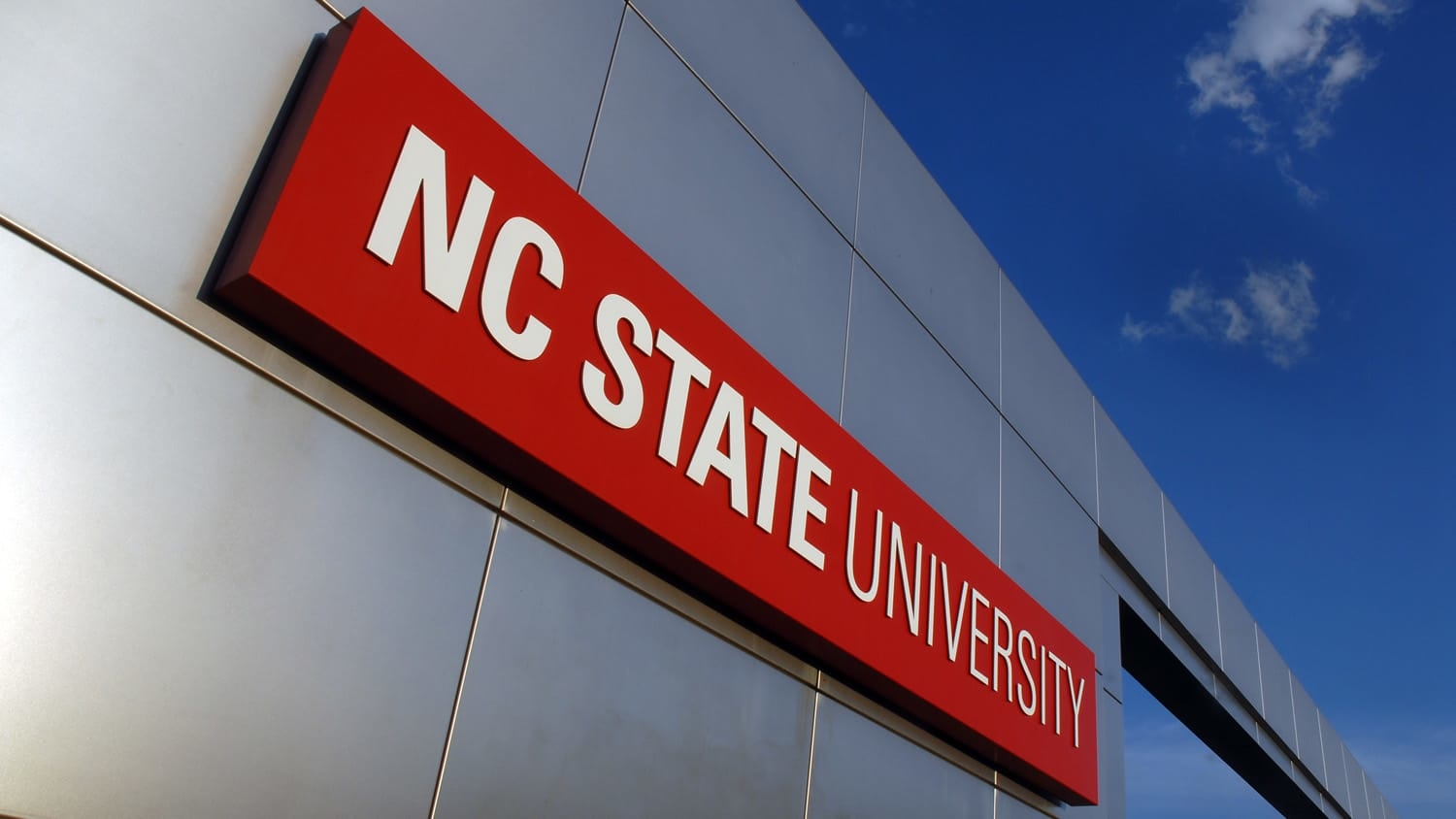NC State Hosts Big Data’s Big Star
By correctly predicting every state in the 2012 U.S. presidential elections, author Nate Silver emerged as one of the best-known statisticians in America. That success propelled his book, The Signal and the Noise: Why So Many Predictions Fail – But Some Don’t, to the top of the New York Times bestseller list.
Last week, the NC State Department of Statistics hosted Silver for a lecture marking the International Year of Statistics. Before speaking at the Hunt Library auditorium, Silver discussed his advice to aspiring statisticians, his move from The New York Times to ESPN and how he would rank colleges and universities.
NC State: If you were a high school senior or college freshman interested in a career in analytics, what sort of path would you take?
Silver: Obviously, you can take math courses and economics courses, but I think it’s actually more important to have a diverse range of courses that you’re participating in. Statistics can be applied to a very wide array of subjects in the real world, and at its best, it’s an applied science. … It’s developing your curiosity about how different things work.
In college, I wound up majoring in economics, but I took as few courses within my major as I could because you’re always going to do more of your learning when you’re pressed with a problem on the job that you’re trying to solve or a problem in your hobby that you’re trying to solve.
I’ve always thought that the top tier of students at state colleges were probably underrated by employers. — Nate Silver
NC State: Your work in baseball and later in politics was seen to bring analytics to a part of the world where no one really thought it existed before. What do you think the next frontiers are for the field?
Silver: It’s tricky. We have a very broad mandate now at FiveThirtyEight (Silver’s blog) under ESPN to start covering different types of subjects. I think education’s actually an area where you could do some interesting things. There are people that put out college rankings, for example, that aren’t all that well done necessarily. (We may) think about testing in a more rigorous way. A lot of schools are obsessed now with looking at the numbers, but they may not be doing so (in a way) that actually improves, in the long run, educational outcomes. So, that’s an area we’re interested in.
Within sports, there are sports apart from baseball where all of a sudden you’re getting a lot more data. The NBA this year, for the first time, will have motion-tracking cameras in all 29 arenas. That’s incredibly interesting information, where now things you were just making guesses at before (like) who really hustles on defense … you can have ways of measuring that. So, within sports there’s a lot of room for improvement as well.
I think politics, looking at how predictable might the behavior of Congress be, once they get elected. We probably focus on elections themselves a little bit more (than governing). There are a lot of ideas.
[brite img=”http://news.ncsu.edu/wp-content/uploads/2013/02/davidian-2-600.jpg” title=”Related Story” header=”Not Your Average Statistician” video=”” link=”http://news.ncsu.edu/2013/02/statistics/” color=”556677″]As president of the American Statistical Association and a Huffington Post columnist, NC State professor Marie Davidian is a leader in a hot field.[/brite]
NC State: You made reference a second ago to ranking of colleges. Without scooping yourself, can you talk a little about what you think may be more useful ways of going about that?
Silver: You can perhaps do more with survey data. In general, I’m not a big fan of methods that just take a whole hodgepodge of things and then meld them together with no underlying rationale. So maybe if you take a predictive framework (such) as (looking at) how happy students are when they go to a certain college. What decisions do students make when they get into different schools? One simple thing is (to) look at employment prospects after college. I’m not saying it’s the only thing that matters, but if you have a school that’s really expensive and the students coming out of that school are not getting good jobs (or) are not well-regarded by employers, then … maybe it’s valuable as entertainment or intellectually or as experience, but looking at those metrics in a different way might be interesting.
I’ve always thought that the top tier of students at state colleges were probably underrated by employers. If you survive an environment like that, where you have to have a lot of your (own) initiative, dealing with a diverse group of students as your peers and as faculty, I’d rather hire someone like that than someone who finished in the middle of the pack at an Ivy League university instead. Maybe that’s wrong, maybe it’s right, but I’d love to find ways to try and test that sort of thing.
NC State: How did you go about turning statistics and statistical analysis into something that’s really cool and hip?
Silver: It’s odd. It’s been a very, very strange path in my life. … Traditionally, you have the poets versus the math nerds and you have the writers and the more left-brain people. Always in my life (I’m) trying to combine those two things. I did debate team and newspaper in high school, in addition to working on data. I always put a lot of emphasis on my writing at the blog.
NC State: Can you draw the parallel after going from sports to politics (and) back to sports, of how those two things are interrelated and how they’re almost exactly the same?
Silver: I should say, I’m not completely going back to sports. We’re certainly going to have a sports component at FiveThirtyEight, but we’re still going to be covering politics, as well as economics and other fields.
I think sports (fans) tend to have – although this might seem wrong if you get very into sports – more perspective on things than people who are deeply into politics. You always have teams that win or lose, right? You always have games that come down to a lucky shot at the last second. You have an intuitive sense for how those probabilities work, and (in) sports you play out games every day. So, you might be the general manager of a team, (and) you might have a trade which looks great on paper. If it doesn’t play out, if your team’s not winning, if the franchise isn’t profitable, then, well, at least you’ve tested your ideas in the real world.
In politics, we only have one election every four years. It’s hard to test ideas. Progress occurs much more slowly, I think.
- Categories:


